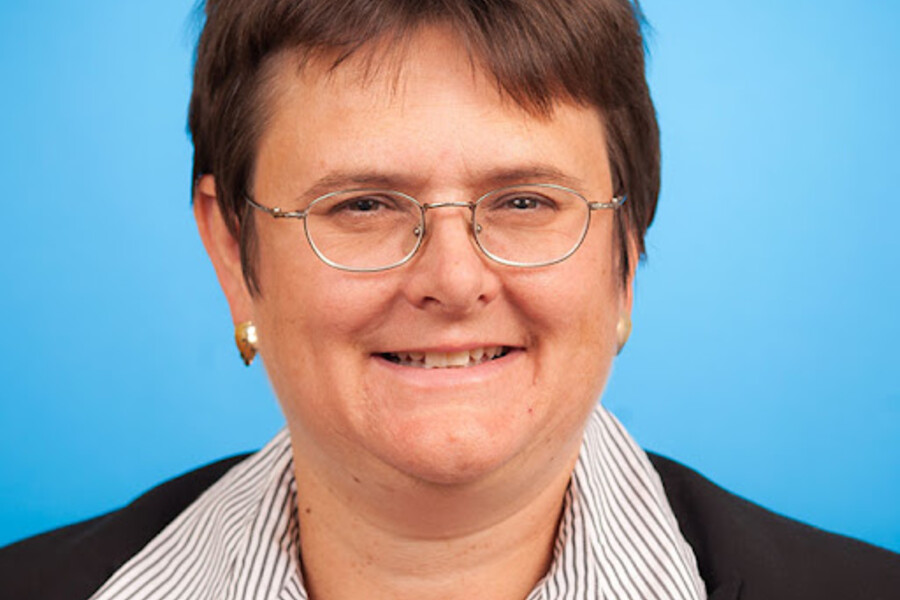Turning Back the Clock on Alzheimer’s Disease with Light Technology
Spotlight On: Dr. Corinne Fischer
August 13, 2020
Many researchers are looking at ways to stop or slow Alzheimer’s disease using new and innovative technologies. This includes TDRA’s Clinical Research Core member Dr. Corinne Fischer, who is leading a multi-centre study testing a medical device developed by the Canadian biotechnology company Vielight Inc. The device is called the “Neuro RX Gamma Photobiomodulation Device,” and it aims to treat Alzheimer’s disease.
The device is a non-invasive headset with a nose clip that delivers low-energy, near-infrared LED light through the skull and the nose to the brain. Dr. Fischer, who is currently the Director of Geriatric Psychiatry at St. Michael’s Hospital and an Associate Professor of Psychiatry at the University of Toronto, has been leading the clinical trial to test whether Vielight’s wearable technology can improve thinking, memory and quality of life in people aged 50 and older living with moderate to severe Alzheimer’s disease.
With a goal of having clinical trials running at 8 sites across North America, there are currently 2 sites that are set up in Toronto and actively recruiting patients. As part of the study, participants are asked to wear the headset for 20 minutes per day, 6 days per week for a period of 6 months, during which Dr. Fischer’s research team will reassess their thinking, memory and quality of life. The trial is being coordinated by the Applied Health Research Centre at St. Michael’s Hospital and is expected to be complete by 2022.
And what does the research say about light therapy? According to Dr. Fischer, initial studies in humans show that this non-invasive light therapy can stimulate mitochondria, the part of the brain cell that produces energy, and promote gene expression that can protect the brain. Initial studies in laboratory models have shown that light therapy can also target the amyloid-beta and tau proteins that deposit in the brains of people living with Alzheimer’s disease. Two published pilot clinical studies support the potential effectiveness of the device.
Inspired to get into Alzheimer’s research to solve unanswered questions and help those with the condition, Dr. Fischer sees the potential benefits that clinical trials can have for people living with Alzheimer’s disease: “This is an opportunity to determine if we can use technology and our knowledge about light therapy (photobiomodulation) to see if it will help improve cognition in Alzheimer’s patients with moderate cognitive impairment, and help address perhaps some of the behavioural symptoms associated with dementia as secondary outcomes. That’s the goal - to see if it can turn back the clock on this neurodegenerative disorder.”
Having completed medical school at the University of Toronto, her residency and fellowship training at McMaster University, and then conducting research at St. Michael’s Hospital for over 20 years, Dr. Fischer knows the ins and outs of dementia care and research. Although she admits research in the field of Alzheimer’s disease can be challenging at times, she is hopeful about the future and what research on light technology could reveal. There is currently no drug or medical device that can stop the course of Alzheimer’s disease, but Dr. Fischer hopes that her research could help provide an effective treatment option for people living with Alzheimer’s disease in the future.

